Baisong Jiang
Deep Unfolding Multi-modal Image Fusion Network via Attribution Analysis
Feb 03, 2025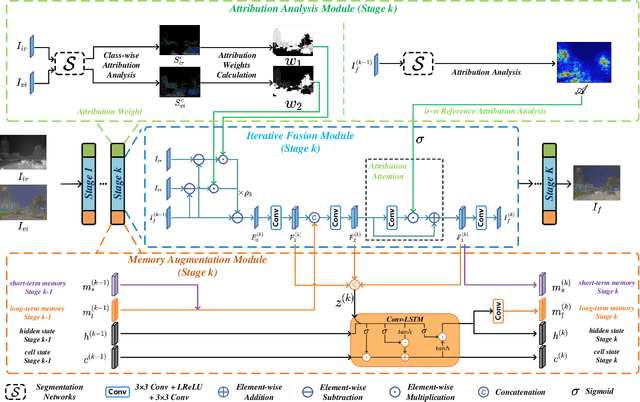
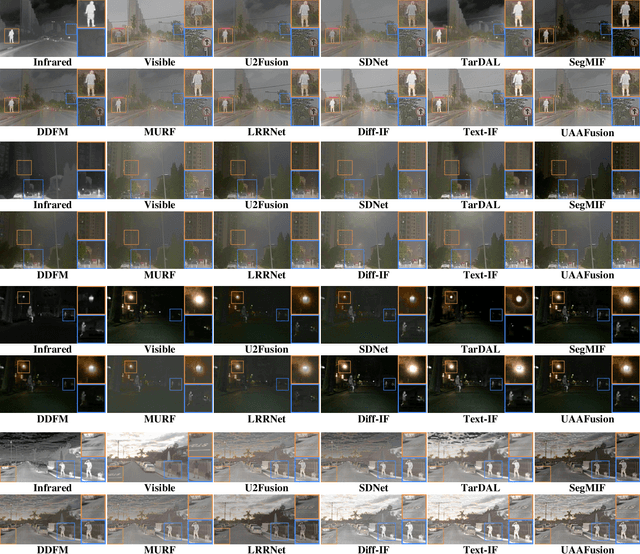
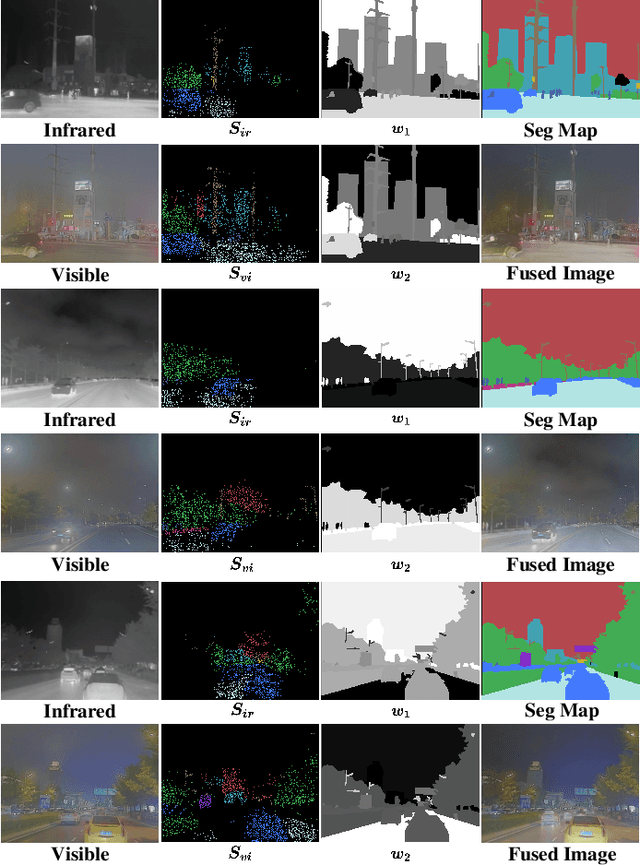
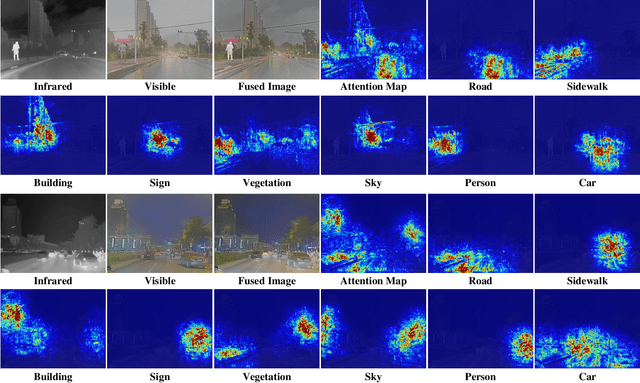
Abstract:Multi-modal image fusion synthesizes information from multiple sources into a single image, facilitating downstream tasks such as semantic segmentation. Current approaches primarily focus on acquiring informative fusion images at the visual display stratum through intricate mappings. Although some approaches attempt to jointly optimize image fusion and downstream tasks, these efforts often lack direct guidance or interaction, serving only to assist with a predefined fusion loss. To address this, we propose an ``Unfolding Attribution Analysis Fusion network'' (UAAFusion), using attribution analysis to tailor fused images more effectively for semantic segmentation, enhancing the interaction between the fusion and segmentation. Specifically, we utilize attribution analysis techniques to explore the contributions of semantic regions in the source images to task discrimination. At the same time, our fusion algorithm incorporates more beneficial features from the source images, thereby allowing the segmentation to guide the fusion process. Our method constructs a model-driven unfolding network that uses optimization objectives derived from attribution analysis, with an attribution fusion loss calculated from the current state of the segmentation network. We also develop a new pathway function for attribution analysis, specifically tailored to the fusion tasks in our unfolding network. An attribution attention mechanism is integrated at each network stage, allowing the fusion network to prioritize areas and pixels crucial for high-level recognition tasks. Additionally, to mitigate the information loss in traditional unfolding networks, a memory augmentation module is incorporated into our network to improve the information flow across various network layers. Extensive experiments demonstrate our method's superiority in image fusion and applicability to semantic segmentation.
ReFusion: Learning Image Fusion from Reconstruction with Learnable Loss via Meta-Learning
Dec 13, 2023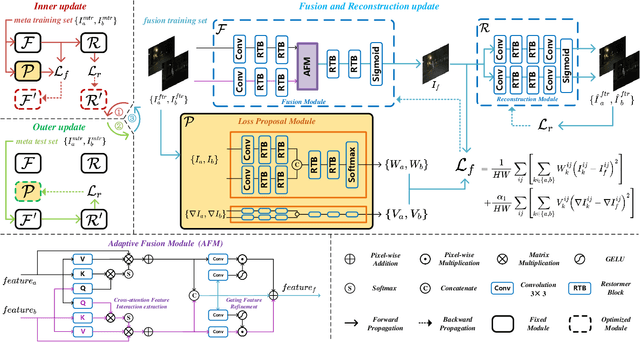


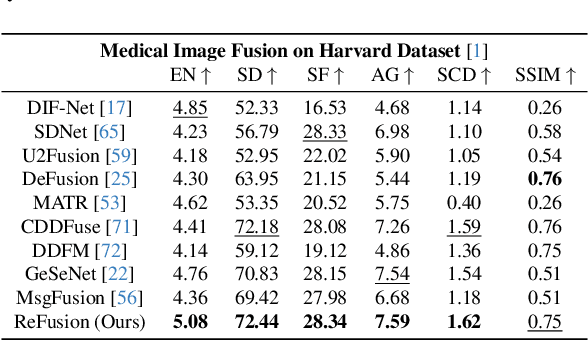
Abstract:Image fusion aims to combine information from multiple source images into a single and more informative image. A major challenge for deep learning-based image fusion algorithms is the absence of a definitive ground truth and distance measurement. Thus, the manually specified loss functions aiming to steer the model learning, include hyperparameters that need to be manually thereby limiting the model's flexibility and generalizability to unseen tasks. To overcome the limitations of designing loss functions for specific fusion tasks, we propose a unified meta-learning based fusion framework named ReFusion, which learns optimal fusion loss from reconstructing source images. ReFusion consists of a fusion module, a loss proposal module, and a reconstruction module. Compared with the conventional methods with fixed loss functions, ReFusion employs a parameterized loss function, which is dynamically adapted by the loss proposal module based on the specific fusion scene and task. To ensure that the fusion network preserves maximal information from the source images, makes it possible to reconstruct the original images from the fusion image, a meta-learning strategy is used to make the reconstruction loss continually refine the parameters of the loss proposal module. Adaptive updating is achieved by alternating between inter update, outer update, and fusion update, where the training of the three components facilitates each other. Extensive experiments affirm that our method can successfully adapt to diverse fusion tasks, including infrared-visible, multi-focus, multi-exposure, and medical image fusion problems. The code will be released.
Seismic Data Interpolation based on Denoising Diffusion Implicit Models with Resampling
Jul 13, 2023Abstract:The incompleteness of the seismic data caused by missing traces along the spatial extension is a common issue in seismic acquisition due to the existence of obstacles and economic constraints, which severely impairs the imaging quality of subsurface geological structures. Recently, deep learningbased seismic interpolation methods have attained promising progress, while achieving stable training of generative adversarial networks is not easy, and performance degradation is usually notable if the missing patterns in the testing and training do not match. In this paper, we propose a novel seismic denoising diffusion implicit model with resampling. The model training is established on the denoising diffusion probabilistic model, where U-Net is equipped with the multi-head self-attention to match the noise in each step. The cosine noise schedule, serving as the global noise configuration, promotes the high utilization of known trace information by accelerating the passage of the excessive noise stages. The model inference utilizes the denoising diffusion implicit model, conditioning on the known traces, to enable high-quality interpolation with fewer diffusion steps. To enhance the coherency between the known traces and the missing traces within each reverse step, the inference process integrates a resampling strategy to achieve an information recap on the former interpolated traces. Extensive experiments conducted on synthetic and field seismic data validate the superiority of our model and its robustness to various missing patterns. In addition, uncertainty quantification and ablation studies are also investigated.
 Add to Chrome
Add to Chrome Add to Firefox
Add to Firefox Add to Edge
Add to Edge